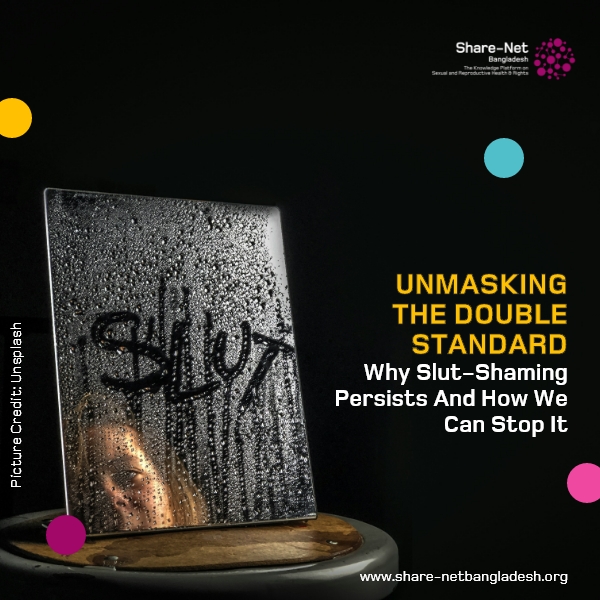Unmasking the Double Standard: Why Slut-Shaming Persists and How We Can Stop It
In a society that often prides itself on progress, the lingering acceptance of slut-shaming remains a stark contradiction to the values of equality and respect. This issue was brought to light recently when a video of a young woman, Farzana Sithi, arguing with a Bangladesh Army officer went viral. Although the situation was later resolved, with Farzana apologising for her behavior, what followed was a wave of online harassment that revealed deep-seated prejudices against women.
The public criticism didn’t stop at her actions in the video. Soon, photos of Farzana from her social media profiles, where she was seen drinking, dancing, and dressed in a saree, sparked a barrage of slut-shaming. The comments ranged from insults about her character to warnings to avoid women like her. This reaction is not just about one person but speaks volumes about how society views and treats women who do not conform to traditional expectations.
Slut-shaming, the act of criticising a woman for her real or perceived sexual behavior, dress, or mannerisms, is a widespread issue that has significant implications for women’s sexual and reproductive health and rights (SRHR). It perpetuates a culture where women are judged and devalued based on their appearance or actions, often leading to severe emotional and psychological consequences.
According to research, women who experience slut-shaming are more likely to suffer from anxiety, depression, and low self-esteem. The fear of being labeled or judged can also discourage women from seeking necessary sexual and reproductive health services, thereby impacting their overall well-being. This stigma contributes to a culture of silence around sexual and reproductive health, where women are reluctant to discuss or seek help for their needs.
Moreover, slut-shaming undermines the broader goals of sexual and reproductive rights by reinforcing harmful gender norms that limit women’s freedom and autonomy. It sends a message that a woman’s value is tied to her sexual behavior, thereby perpetuating inequality and discrimination.
The incident involving Farzana Sithi is a reminder that slut-shaming is still pervasive in our society. It highlights the urgent need for education and awareness to combat these harmful attitudes. Protecting women from slut-shaming is not just about defending individual rights; it is about challenging the social norms that allow such behavior to persist.
By promoting a culture of respect and equality, society can ensure that every woman has the freedom to express herself without fear of judgment or harassment. It is time to move beyond outdated notions of morality and embrace a future where all women are valued for who they are, not how they appear.
Source: Daily Bangladesh

